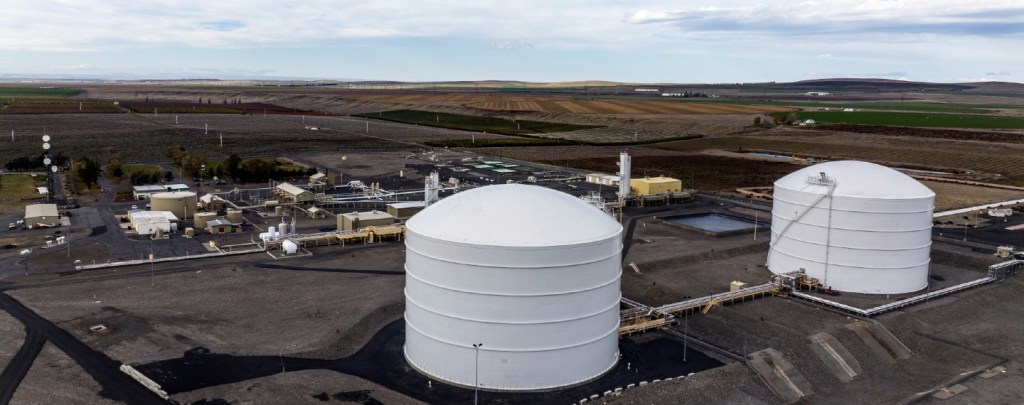The Plymouth LNG storage facility in southeast Washington could be compared to a bank account, but instead of cash being socked away for a rainy day, it’s natural gas that is stored for peak demand like during winter storms.
In a process called peak shaving, natural gas is liquefied and stored in cryogenic tanks until needed. Then it is regasified and moved where it is needed most via our bi-directional Northwest Pipeline system.
Northwest Pipeline is the primary provider of natural gas to the population centers of Seattle and Tacoma, Washington; Portland, Oregon; and Boise, Idaho, serving local distribution companies that power homes and businesses, industrial users and power plants.
The Plymouth facility has been serving the Pacific Northwest since 1956, when it was first built as a compressor station. In the 1970s, liquefaction units were added to make it an LNG storage facility.
“During the summer months, we pull excess gas off of the pipeline system, cool it to minus 260 degrees Fahrenheit and store it in a liquid form in large above-ground storage tanks,” said Tom Clouse, supervisor of operations for Eastern Washington. “And then in the wintertime, when our customers need that gas, we can pull that liquid back out of the tanks, vaporize it back into a gas and put it back into the pipeline system.”
That ability was critical when an Arctic cold front blasted into the Pacific Northwest in January, leading to record volumes along Northwest Pipeline.
The Plymouth facility is staffed day and night so that supply is available for any situation, Clouse said, and employees work hard to prepare for changing conditions.
“In the winter, we have to be 100% reliable and our equipment must be fully functioning at all times so that businesses and homes have heat during the harshest conditions. We perform a lot of preventive maintenance, testing and calibrations and take a lot of pride in what we do here.”
Clouse said natural gas is also an “always on” back-up fuel for renewable energy, which can be intermittent during winter storms.
The Plymouth plant can store 2.4 billion cubic feet of gas, with a daily delivery capacity capable of serving more than 1.5 million homes in Washington state with natural gas.
Learn more about our growing natural gas storage business at Williams.
